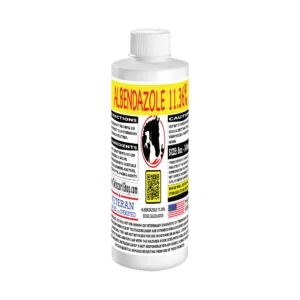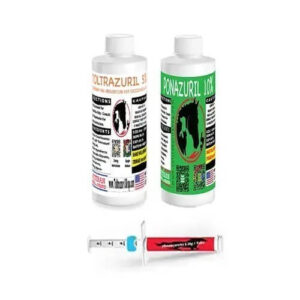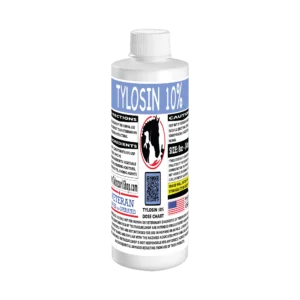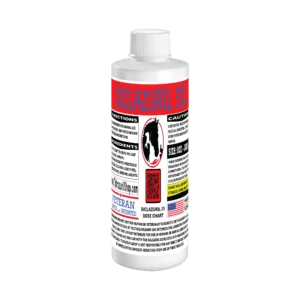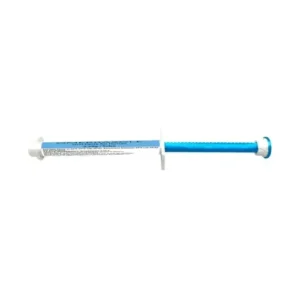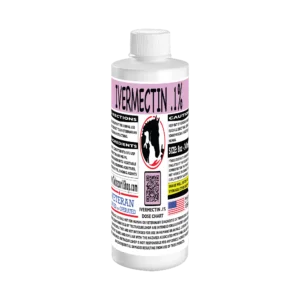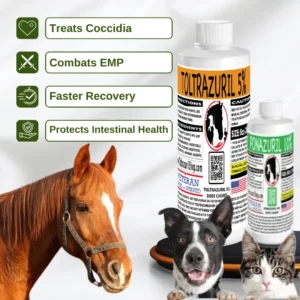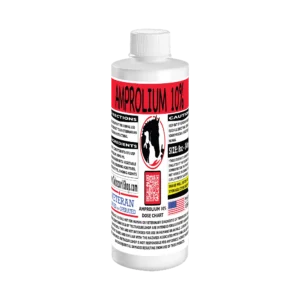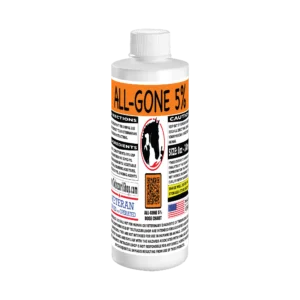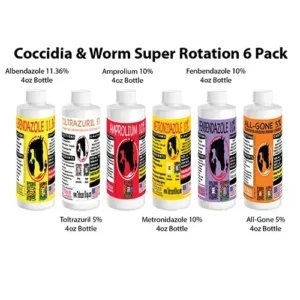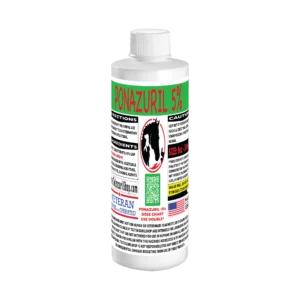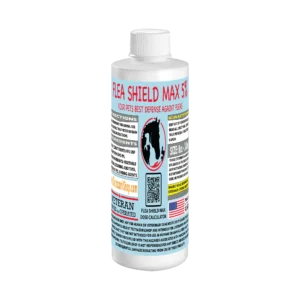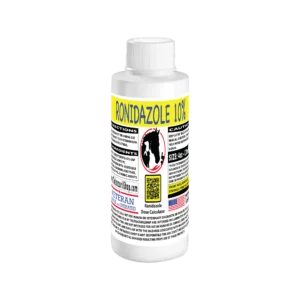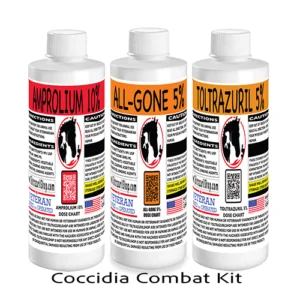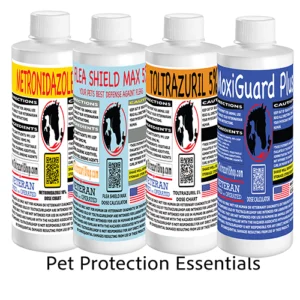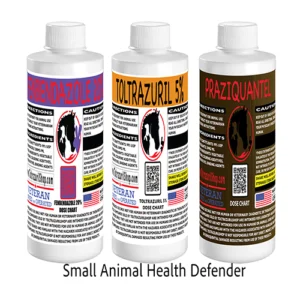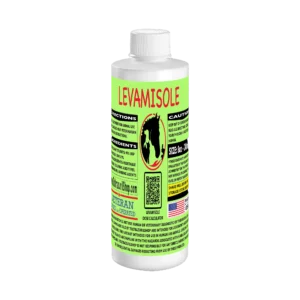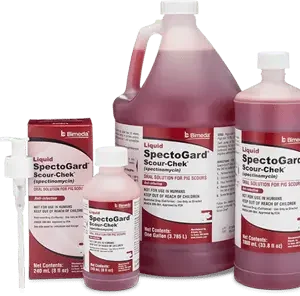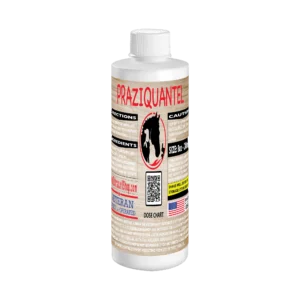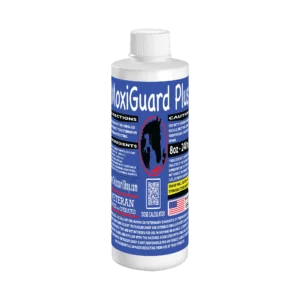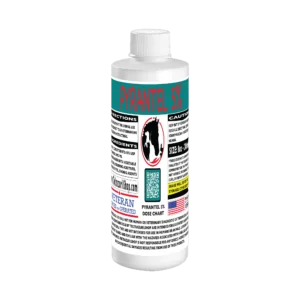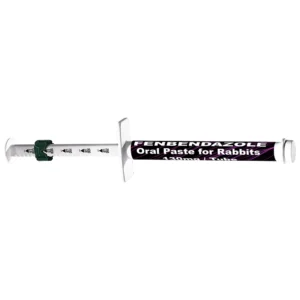-
Animal Products
Albendazole 11.36% Liquid Solution
$9.95 – $219.95 Select options This product has multiple variants. The options may be chosen on the product pageRated 0 out of 5 -
Animal Products
Small Animal Coccidia & Wormer Bundle
Rated 0 out of 5$199.95Original price was: $199.95.$79.95Current price is: $79.95. Add to cart -
Animal Products
EPM & Ulcer Eliminator Bundle for Horses
Rated 0 out of 5$269.95Original price was: $269.95.$199.95Current price is: $199.95. Add to cart -
Animal Products
Tylosin 10% Liquid Solution
$15.96 – $99.95 Select options This product has multiple variants. The options may be chosen on the product pageRated 0 out of 5 -
Animal Products
Diclazuril 5% Liquid Solution
$19.95 – $29.95 Select options This product has multiple variants. The options may be chosen on the product pageRated 0 out of 5 -
Animal Products
Omeprazole Paste for Horse Ulcer Treatment | 2.28g Paste Tube
$0.00 – $599.95 Select options This product has multiple variants. The options may be chosen on the product pageRated 0 out of 5 -
Animal Products
Metronidazole 10% Liquid Solution
$24.95 – $399.95 Select options This product has multiple variants. The options may be chosen on the product pageRated 0 out of 5 -
Animal Products
Ivermectin Liquid Solution
$6.95 – $129.95 Select options This product has multiple variants. The options may be chosen on the product pageRated 0 out of 5 -
Animal Products
Toltrazuril Liquid Solution
$4.95 – $999.95 Select options This product has multiple variants. The options may be chosen on the product pageRated 0 out of 5 -
Animal Products
Amprolium 10% Liquid Solution
$5.95 – $54.95 Select options This product has multiple variants. The options may be chosen on the product pageRated 0 out of 5 -
Animal Products
All-Gone 5% Oral Suspension for Pets
$19.95 – $349.95 Select options This product has multiple variants. The options may be chosen on the product pageRated 0 out of 5 -
Animal Products
Max EPM Bundle for Horses – Toltrazuril Shop
Rated 0 out of 5$169.99Original price was: $169.99.$99.95Current price is: $99.95. Add to cart -
Animal Products
Small Animal Coccidia & Wormer Bundle 6 Pack Rotation
Rated 0 out of 5$149.99Original price was: $149.99.$89.95Current price is: $89.95. Add to cart -
Animal Products
Small Animal Coccidia & Wormer Bundle 8oz Bottles
Rated 0 out of 5$234.99Original price was: $234.99.$139.95Current price is: $139.95. Add to cart -
Animal Products
Ponazuril Liquid Solution
$19.95 – $499.95 Select options This product has multiple variants. The options may be chosen on the product pageRated 0 out of 5 -
Animal Products
Nitenpyram Flea Shield Max Flea & Tick Solution
$19.95 – $199.95 Select options This product has multiple variants. The options may be chosen on the product pageRated 0 out of 5 -
Animal Products
Ronidazole 10% Liquid Solution
Rated 0 out of 5$63.99Original price was: $63.99.$29.95Current price is: $29.95. Select options This product has multiple variants. The options may be chosen on the product page -
Animal Products
Ultimate Wormer Rotation Pack – 4oz Bottle of Each
Rated 0 out of 5$149.95Original price was: $149.95.$79.95Current price is: $79.95. Add to cart -
Animal Products
Coccidia Combat Kit
Rated 0 out of 5$99.99Original price was: $99.99.$59.95Current price is: $59.95. Add to cart -
Animal Products
Pet Protection Essentials
Rated 0 out of 5$319.99Original price was: $319.99.$189.95Current price is: $189.95. Add to cart -
Animal Products
Small Animal Health Defender
Rated 0 out of 5$189.99Original price was: $189.99.$109.95Current price is: $109.95. Add to cart -
Animal Products
Levamisole 10% Liquid Solution
$12.95 – $249.95 Select options This product has multiple variants. The options may be chosen on the product pageRated 0 out of 5 -
De-Wormers
Blackout EPM & Coccidia Solution: Fast-Acting Treatment for Coccidiosis and EPM Symptoms
Rated 0 out of 5$119.99Original price was: $119.99.$69.95Current price is: $69.95. Add to cart -
Cattle
Spectinomycin 5% Liquid Solution – Effective Antibiotic for Livestock and Poultry Health
$19.95 – $59.99 Select options This product has multiple variants. The options may be chosen on the product pageRated 0 out of 5 -
Cat Dewormer
Praziquantel Liquid Solution
$22.95 – $39.95 Select options This product has multiple variants. The options may be chosen on the product pageRated 0 out of 5 -
Animal Products
Fenbendazole Liquid Dewormer
$14.95 – $409.95 Select options This product has multiple variants. The options may be chosen on the product pageRated 0 out of 5 -
Animal Products
MoxiGuard Plus – Moxydectin / Pyrantel / Sarolaner Solution
$39.95 – $199.95 Select options This product has multiple variants. The options may be chosen on the product pageRated 0 out of 5 -
De-Wormers
Pyrantel 5% Liquid Solution
$12.95 – $159.95 Select options This product has multiple variants. The options may be chosen on the product pageRated 0 out of 5 -
Animal Products
Fenbendazole Paste | Best Vet-Approved Parasite Protection | 130mg / Tube
Rated 0 out of 5$9.95Original price was: $9.95.$6.95Current price is: $6.95. Add to cart -
Animal Products
Horse Ulcer Treatment | 2.28g Paste Tube
$0.00 – $599.95 Select options This product has multiple variants. The options may be chosen on the product pageRated 0 out of 5 -
Animal Products
Flea Shield Max Flea & Tick Solution
$19.95 – $199.95 Select options This product has multiple variants. The options may be chosen on the product pageRated 0 out of 5 -
Animal Products
Fen Ben Pro Liquid Dewormer
$14.95 – $409.95 Select options This product has multiple variants. The options may be chosen on the product pageRated 0 out of 5
Coccidia Prevention – Your Trusted Source for Animal Health Solutions
At Coccidia Prevention, we are dedicated to offering top-quality treatments to protect animals from coccidiosis, parasites, bacterial infections, and more. Whether you’re a pet owner, livestock manager, or veterinarian, our extensive range of products ensures you have access to the best solutions for maintaining animal health.
Our parent company, Toltrazuril Shop, has been a leader in the industry, providing trusted and scientifically backed animal health solutions. We continue this legacy by bringing you premium anti-coccidial treatments, dewormers, and parasite control products.
Why Choose Coccidia Prevention?
- Veterinary-Approved Products – Trusted and recommended by animal health professionals.
- Comprehensive Health Solutions – Treatments for small pets, livestock, poultry, and horses.
- Affordable & Effective – High-quality products at competitive prices.
- Easy Ordering & Fast Shipping – Get the treatments you need quickly and conveniently.
Shop Our Best-Selling Products
Coccidiosis Treatments
Coccidia is a serious threat to animal health, causing digestive distress, weight loss, and infections. We offer powerful anti-coccidial solutions, including:
- Toltrazuril 5% Liquid Solution – A highly effective treatment for coccidiosis in livestock, horses, and small animals.
- Ponazuril Liquid Solution – A trusted alternative for treating equine protozoal myeloencephalitis (EPM) and coccidiosis.
- Diclazuril 5% Liquid Solution – A safe and effective option for coccidia prevention in animals.
Dewormers & Parasite Control
Protect your animals from harmful parasites with our selection of Ivermectin, Pyrantel, Fenbendazole, and Levamisole solutions:
- Ivermectin Liquid Solution – A broad-spectrum antiparasitic treatment for horses, cattle, and pets.
- Fenbendazole Liquid Dewormer – A powerful dewormer for dogs, cats, and livestock.
- Pyrantel 5% Liquid Solution – Effective against roundworms and hookworms in pets and farm animals.
Equine Health Solutions
Horses require specialized care to maintain their strength, stamina, and overall health. We offer EPM treatments, ulcer prevention, and immune-boosting solutions, such as:
- EPM & Ulcer Eliminator Bundle for Horses – A combination of essential treatments for equine protozoal myeloencephalitis and gastric health.
- Omeprazole Paste for Ulcer Treatment | 2.28g Tube – A proven remedy for preventing and treating equine gastric ulcers.
- Metronidazole 10% Liquid Solution – A powerful antibiotic for bacterial infections in horses and other animals.
Livestock & Poultry Health
Keep your farm animals disease-free and thriving with our antibiotics, anti-parasitic medications, and immune boosters, including:
- Spectinomycin 5% Liquid Solution – A highly effective antibiotic for livestock and poultry.
- Max EPM Bundle for Horses – Toltrazuril Shop – A complete package for equine health and coccidia prevention.
- Small Animal Coccidia & Wormer Bundle – A multi-use treatment bundle for small pets and farm animals.
Flea & Tick Control
Prevent flea and tick infestations with fast-acting solutions that ensure your pets stay itch-free and healthy:
- Nitenpyram Flea Shield Max Flea & Tick Solution – A rapid-acting flea treatment for dogs and cats.
- Fen Ben Pro Liquid Solution – A dual-action dewormer and parasite control solution.
A Commitment to Animal Health & Well-Being
At Coccidia Prevention, we believe that healthy animals lead to happy lives. Whether you’re caring for a beloved pet, managing a farm, or operating a veterinary practice, our mission is to support you with high-quality, affordable, and effective treatments.
Trust us to be your partner in animal health – because your animals deserve the best!
➡ Shop Now and ensure your animals get the care they need! 🚀
